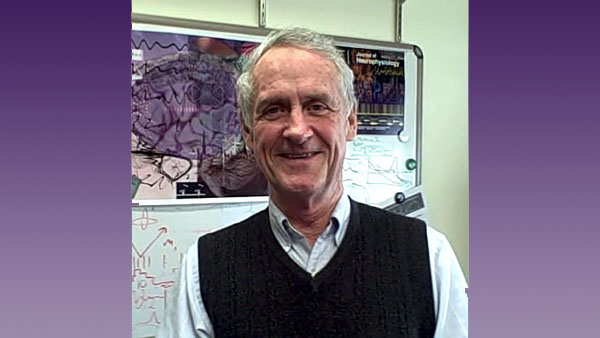Eberhard Fetz, WaNPRC core staff scientist, and Chet Moritz, WaNPRC affiliate scientist, will contribute expertise to a new Engineering Research Center for Sensorimotor Neural Engineering (CSNE) based at the University of Washington (UW). The CSNE, which launches this month in UW Russell Hall, is funded by an $18.5 million grant from the National Science Foundation.
“The center will work on robotic devices that interact with, assist and understand the nervous system,” said director Yoky Matsuoka, a UW associate professor of computer science and engineering. “It will combine advances in robotics, neuroscience, electromechanical devices and computer science to restore or augment the body’s ability for sensation and movement.”
Fetz, a UW professor of physiology and biophysics, and Moritz, a UW professor of rehabilitation medicine, will contribute research on restoring movement to paralyzed limbs using tiny, battery-powered implantable brain-computer interfaces called neurochips. The two researchers and their colleagues have successfully deployed the devices in nonhuman primates.
“The neurochip can be used to bridge lost connections and can also strengthen neural connections by delivering stimulation synchronized with neural activity,” Fetz said. “It operates autonomously during free movements, allowing the adaptive brain to incorporate the artificial recurrent loop into normal behavior and provides ample time to create neural plasticity.”
The neurochip resulted from a productive collaboration between a neuroscientist, Andrew Jackson, and electrical engineering student Jaideep Mavoori. “The new center will provide many new opportunities for such innovative interdepartmental collaborations,” Fetz said.
Partners are the Massachusetts Institute of Technology and San Diego State University. Also partnering are historically minority-serving institutions Spelman College and Morehouse College, both in Atlanta, and Southwestern College in Chula Vista, Calif. International partners are the University of British Columbia and the University of Tokyo.
For more information, read the UW news release.
